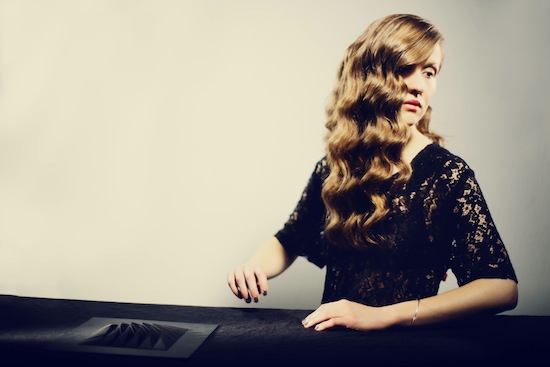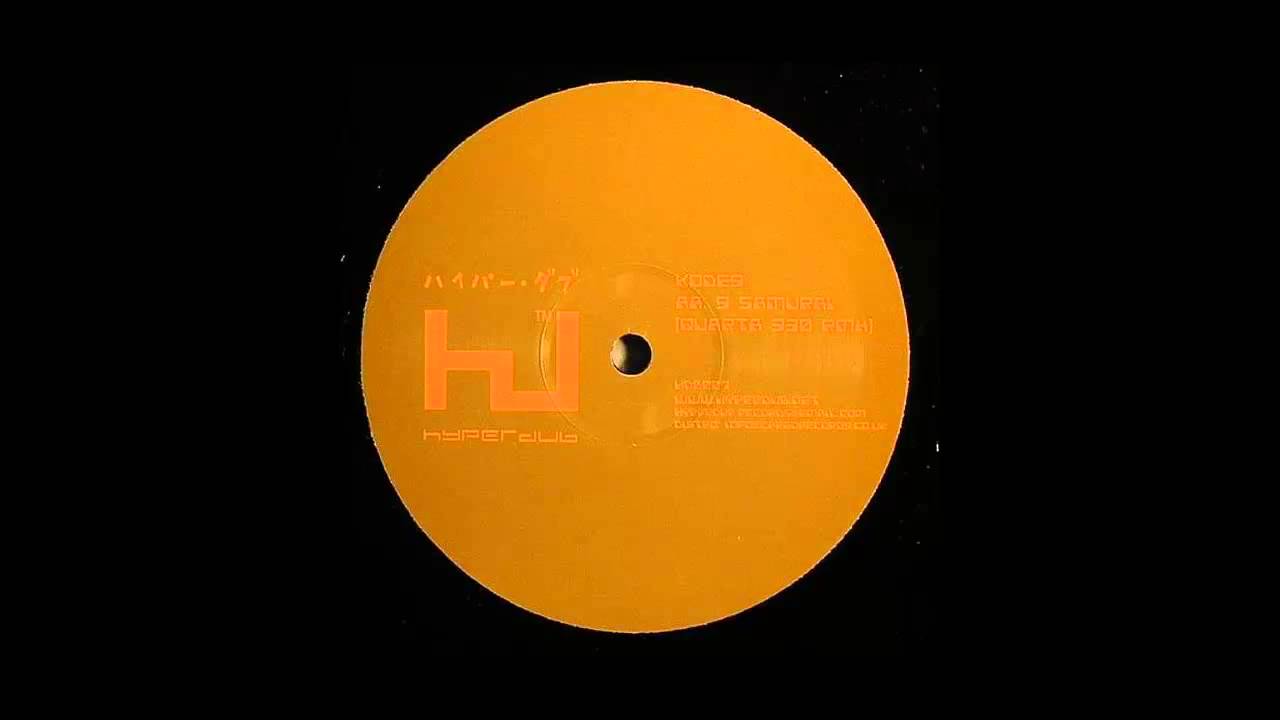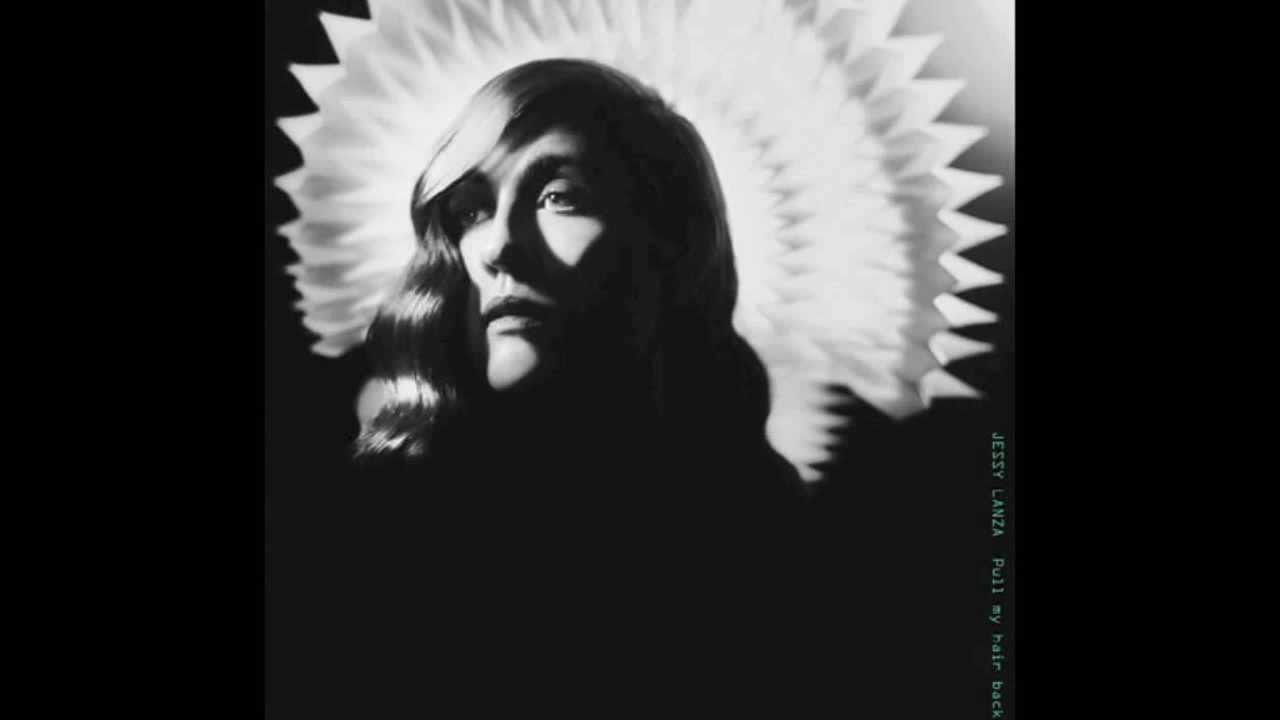Elephant & Castle’s Corsica Studios on a Wednesday night: perhaps not the first setting that comes to mind for a Hyperdub tenth anniversary blowout. But then, Hyperdub isn’t particularly interested in tradition. It’s a label that stands where it is today by continually spurning conventions and instead concentrating on progression and, above all, consistency. Admittedly, the label’s beginnings were relatively insular, though not to its detriment. Its origins lie as a modest, Camberwell-based webzine, set up in 2000 as an outpost for founder Steve Goodman’s, aka Kode9, interest in the influence of Jamaican soundsystem culture on electronic music. Four years later and Hyperdub, the label, was birthed, initially as a means for Goodman to share some of his own productions following the advice of Kevin Martin, otherwise known as The Bug and, later, a Hyperdub roster member himself as King Midas Sound. ‘Sine Of The Dub’ gave way to another EP with now established collaborator The Spaceape, and then in 2005, the debut release from the shadowy producer that has earned Hyperdub so much of the (sometimes crazed) veneration it enjoys today. As Goodman put it in Clash’s recent profile of the label, Burial allowed Hyperdub "to carry on like we have for ten years and grow, not just carry on surviving".
You could say we owe a lot then to William Bevan, not just for the music, but also for his part in the healthy position that Hyperdub find itself in today. Celebrating a bumper tenth year as a record label, 2014 has seen them host a slew of birthday parties around the world (just a few days prior to this latest bash at Corsica, the crew had held one of several boat parties at Croatia’s Dimensions Festival and are currently on a tour of North America) and pull together four anniversary compilations celebrating the diverse, cult beast that Hyperdub has grown into. The night before, the label had been one of the successes of the 2014 AIM Independent Music Awards, with Goodman collecting the Innovator Award and Hyperdub being named Best Small Label. It was certainly never spawned as a means of obtaining industry plaudits, but importantly Hyperdub has earned them anyway, without a need to kowtow to industry bullshit or compromise on its promise of quality.
As Goodman explained in a 2013 interview with Lisa Blanning for Electronic Beats, the first ever Hyperdub party, during its formative days as an online magazine run from a flat above a hair salon, under the ‘Hyperdub 130’ banner was named such because of the changing genres that its residents would gravitate towards: "I was playing garage, broken beat, and early dubstep, Darren [Cunningham, aka Actress] was playing techno and house, and Gavin [Weale, who co-founded Werkdiscs] was playing electro, breaks – so really the only thing that held it together was a rough tempo". This all-embracing approach sums up much of Hyperdub’s history as they expanded from early champions of forward-thinking, underground British electronic music like grime (Terror Danjah, Flowdan), dubstep (Kode9 & The Spaceape, Joker, Burial), and UK funky (Funkystepz, Ill Blu, Scratcha DVA) and spread their wings further taking in lo-fi, dubbed-out pop from Hype Williams, Laurel Halo and Kyle Hall’s Motor City techno and house, the rhythmic complexities and breakneck speeds of DJ Rashad’s footwork and Jessy Lanza’s vaporous, synthesised R&B.
Hyperdub’s ability to bring these acts together under one roof while maintaining a feel of intimacy and, significantly, the bond with its original faithful, many of which came to them from their connection with two other key markers of the dubstep, grime and UK funky axis: former pirate radio station Rinse FM (they hold down a monthly slot) and seminal club night FWD>> (Goodman was an early resident and hosted their Rinse FM show from 2003-08), is one of its key strengths. Where other independent labels have expanded and perhaps lost the crucial element of complete quality control, Hyperdub has remained relatively grounded thanks to minimal staff numbers, a rejection of strict A&R policies and a seeming commitment to chase producers on the basis of taste rather than flavour-of-the-month trends.
Stepping into the relatively cosy confines of Corsica Studios’ railway arches, the throng of people immediately ahead perusing vinyl copies of Dean Blunt and Jessy Lanza albums makes for mild amusement. Admittedly, it is a school night and a lot of the people in the room will no doubt be looking to get off as early as possible to return the next morning to whatever job, most likely in the ‘creative’ sector, it is that they do. Does it feel at odds though with the label’s fundamentally club-oriented history? A bit. After all, this is the label that has given us so many of the finest musical moments in the grime, UK funky and dubstep scenes over the last ten years – think ‘9 Samurai’, ‘Skeng’, ‘Spliff Dub’ – this is music designed to make you skank, inviting you to revel in the might of its oppressive sub-bass. But then, am I just overthinking things? Very possibly. In its growth, Hyperdub has become so much more than just a label for enthusiasts of those aforementioned kinds of weighty stormers that formed its early backbone, as qualified by tonight’s bill. While the second room is treated to rowdy DJ sets from three of Hyperdub’s most central members, Kode9, Scratcha DVA and Ikonika, the main room accommodates the broader flanks of its signees with cold, ’80s-tinged R&B and pop served up by Jessy Lanza and hazy experimentation from Dean Blunt.
This two-sided line-up also makes for a weird dichotomy though. On the one hand you have those standing, carefully clutching their records under arm, lest an errant pint or limb find itself coming into contact with their precious purchases. There are also the stragglers in the main room that choose to chit-chat as Jessy Lanza plays a metre or so in front. But then, a curious crew of hardened, dedicated devotees stand alongside them. During Goodman’s second room set, people are actually footworking and not just making a half-arsed attempt of it either. Heading to catch Scratcha DVA (Kode9’s recommendation ensuring he builds a sizeable crowd: "Make sure you check out the other room by the way because Scratcha is absolutely battering the fuck out of it right now"), I’m met with a scene not especially common in many of London’s clubs. Just ahead of the meek booth from which Scratcha is playing, a large circle has formed and in the middle of it, a man that had been dotingly shouting back every word of Jessy Lanza’s set minutes earlier, was now voguing with an admiring bunch surrounding him. The House Of Xtravaganza this might not be, but the merging of different aesthetics and overall harmony inside Corsica is impossible to ignore, building an atmosphere completely free of potentially aggy quarrels and insecure dancefloor shuffling. It’s difficult not to let loose though as Scratcha runs through a rampant set of bass-driven, metallic club music and R’n’G including tracks from a number of other, more fresh-faced labels enjoying standout years in 2014, namely Her Records and Local Action (the teasing of Finn’s ‘Keep Calling’, one of the current bangers of the so-called new wave of grime, proving a particular highlight).
In the main room, Jessy Lanza’s set-up is still, a year on from her formidable debut, Pull My Hair Back, a fairly stripped-back affair. She stands surrounded by keyboards, a sequencer, laptop and some fairly modest LED lights as she runs through a set mostly made up of material from that album. The insistence on performing solo does however mean that she’s constantly busy as she swaps her microphone between hands, racing to add that keyboard flourish here and touch of reverb there. Opening with highlight ‘5785021’ and immediately following with single ‘Kathy Lee’, she doesn’t wait around, her voice soaring and reaching new heights in the climatic ad-libs of tracks such as ‘You And Me’, but also maintaining the restrained husk of album cuts such as ‘As If’ and ‘Against The Wall’. Perhaps though, her concentration on the technology laid out in front of her makes for a slight barrier between performer and audience – a shame since her elusive, sensual tales of vulnerability and lust require that vital element of audience connection to truly spark up something special.
The second of the night’s live performers takes an altogether different path. Dean Blunt takes the stage in darkness, a guard and guitar player in tow, and it stays that way for most of the first half as he shuns the recognisable sounds of last year’s The Redeemer, instead drawing on tracks from his upcoming Rough Trade debut, Black Metal. Brief, ghostly glimpses of Blunt can be caught through the darkness and smoke that permeates the room as he wanders the stage aimlessly, mostly with his back to the generally visibly confused mass. Around halfway through though, the room is transformed from a dense black into eyeball-bashing brightness. Strobes flicker constantly, underpinned by bursts of ambling sub-bass from the Funktion One sound system. Some, directly in the line of fire, scramble to avert their eyes as Blunt stands motionless at the centre of it all, while others, seemingly growing impatient, unfortunately strike up conversations. Things carry on like this for ten minutes – about a fifth of Blunt’s overall set – and it’s certainly taxing for a Wednesday night club crowd, but expecting a Dean Blunt set to play by the rulebook is about as rational as not anticipating a lengthy tirade on celebrity culture from a Kanye West show – ultimately, you’d feel short-changed if you got a glossy, focus group-approved set-up from either.
Goodman, meanwhile, acts as an ever-reliable point of continuity for the evening as host and DJ, preceding his closing set with a smattering of ’80s funk and disco (Prince, Grace Jones) eventually giving way to throwback ’90s R&B in the main room ahead of Lanza. He graces the microphone at points, his Glaswegian tones sounding slightly diminished by many years spent living in London, with a palpable air of pride and buoyant enthusiasm, almost to the effect of a radio DJ ("nobody’s ever heard this before"), as he introduces a new DJ Spinn & Taso track, featuring vocals from Lanza, which he would again drop at peak-time later that night.
The last time Hyperdub took over Corsica Studios, back in February, to kick-start their tenth anniversary celebrations, was with a man that had very much grown to become a core component of the label’s extended family. DJ Rashad’s first Hyperdub EP had been released just under a year earlier, but it was clear that his vision in combining pulsating bass, skitterish rhythms and the soul of his hometown of Chicago had had a major effect on the label, most importantly Goodman. The footwork that Rashad produced with such effortless grace has been a key feature of the two anniversary compilations that Hyperdub have so far released this year, and also formed a large chunk of Goodman’s Rinse:22 set from last May. That’s why when he closes this latest birthday celebration with a 90-minute set punctuated entirely by this extraordinary, hard-hitting sound, there’s not one part of me that can question whether it feels excessive, or whether Goodman, a leader in the breakthrough of dubstep over a decade earlier, is the man best suited to building a set full of music so firmly rooted in Rashad and his Teklife associates’ roots. In Goodman’s own words following Rashad’s death, he had become "one of my biggest musical influences". Weaving in cuts from last year’s essential Double Cup, the only album Rashad released with Hyperdub, alongside other hitters from the Teklife crew, he doesn’t fuck around either. This is as much a set designed for the midweek ravers going through into the early hours as it is about presenting where both Goodman and Hyperdub are at right now as he smoothly transitions between the constantly mutating drum patterns and glorious, chopped-up vocal samples that are commonplace in footwork.
Without the disposition of Goodman and his cohorts to persistently reach out, discover and shine a light on fairly under-the-radar sounds such as footwork, Hyperdub may have petered out. Growing bored of a homogenising dubstep scene that he believed was taking the colour out of much of the music, Goodman fortunately broadened Hyperdub out of its fairly constrained, humble beginnings, embracing the richly melodic textures of producers like Zomby, Darkstar and Ikonika. His ear for shunning that which might be deemed inoffensive or saturated has seen the label through to its decade anniversary, and not just limping over the benchmark either, as the grins of tonight’s attendees demonstrate. Looking ahead though, Hyperdub appears to have found a healthy balance of keeping one foot in its history and the other very firmly in an undefined future. With Dean Blunt’s commitment on the night to baffling club audiences as well as the upcoming Cooly G album, on which she’s set to explore her love of R&B and move away from the tribal house of past work, it seems that Hyperdub is still determined to avoid pigeonholing, but keen too to continue honouring its earliest and most faithful signees, namely those on the more dancefloor-oriented side of tonight’s bill, and the foundations that were built on their rousing, innovative club constructions.
Over 100 releases deep, the label continues to prove that underground electronic music can be unrelentingly fun while still preserving an oeuvre of edge and sincerity. As it approaches 3 am and the power to the DJ booth is cut, a sizeable, unwavering selection of people left loitering around me break out into a boozy rendition of ‘Happy Birthday’ ("dear Hyperdub") and the gratitude to Goodman and co. is unmistakable. Hyperdub finds itself the subject of such loyalty not just because it has soundtracked some of the earliest ventures into club culture of these various twenty-somethings that remain until lights up, but also because it has been a vital gateway for so many into forward-thinking electronic music as a whole.




